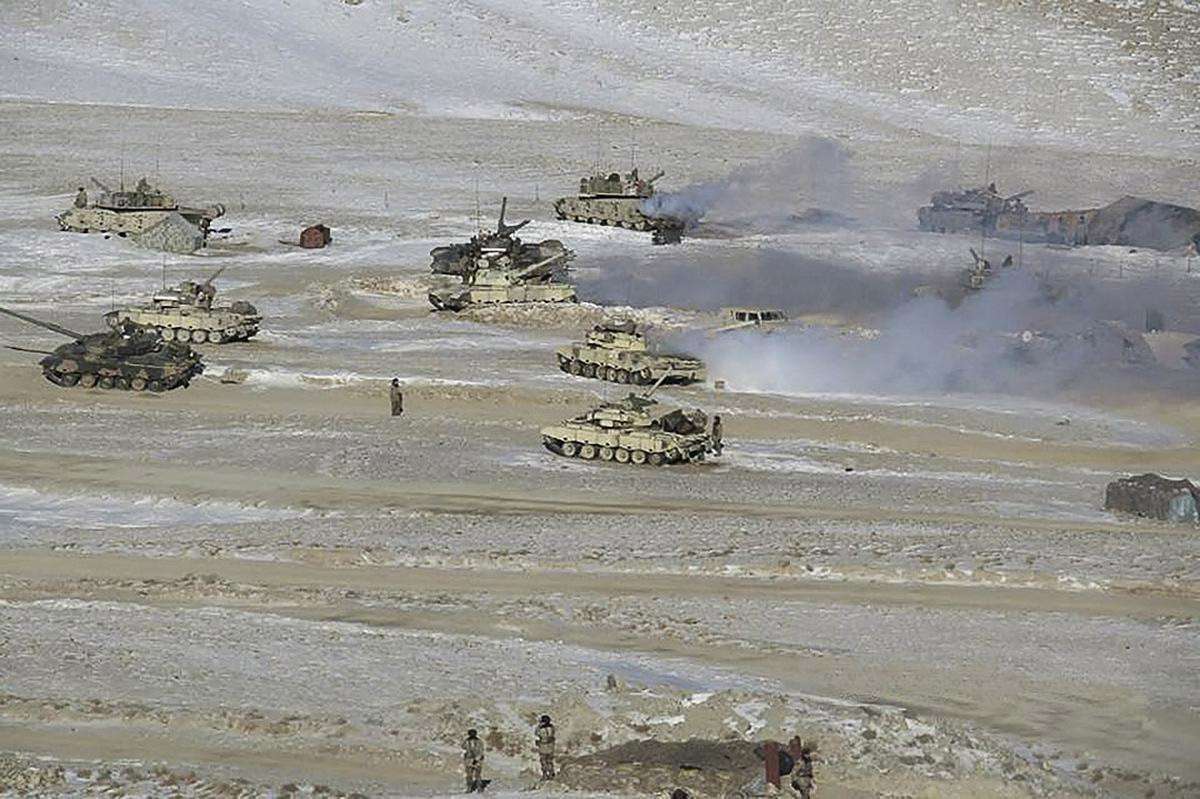NEW DELHI, Aug 26 : The Army is set to procure a fleet of light tanks for deployment in high-altitude areas in eastern Ladakh under ‘Project Zorawar’ to bolster its overall firepower and operational prowess to deal with any eventualities.
Sources in the defence and security establishment said the Acceptance of Necessity (AoN) or the initial approval to the project is likely to be accorded by the defence ministry next month.
The plan for deployment of the light tanks comes amid the lingering border row in eastern Ladakh that severely strained the ties between India and China.
The sources said the light tanks will have firepower at par with the existing ones and they are being procured to ensure quick deployment and boost agility of the force as the “threat” along the northern borders is likely to remain in the “foreseeable future”.
The sources said it was realised that there was a “gap” when it came to using existing tanks in such terrains, and thus a “lighter tank” was needed.
The recent experiences along the northern borders have shown that armour equipment profile is one of the most “prominent factors” in defining operational capability of the land forces.
The adversaries have inducted a large number of “technologically modern, state-of-the-art tanks” and employed a mix of medium and light tanks with high power to weight ratios, the sources said.
This “increased threat” on the northern borders is likely to remain “a threat in the foreseeable future”, the sources said, adding capability development takes time.
“Our current tanks are doing a good job and last time we had taken a number of steps to enhance their sustainability through various means,” a source said.
However, in higher altitude areas, a gap was found, and so “we needed a lighter tank, which is equally capable as the existing ones,” the source said.
These tanks to be procured under ‘Project Zorawar’ — named after legendary Zorawar Singh, a military general who served under Raja Gulab Singh of Jammu — will have equal firepower as the current ones.
They said missile-firing capability, counter-drone apparatus, warning system and a power-to-weight ratio will make the tanks “very agile”.
They said the light tanks will help the Army overcome the limitations of medium battle tanks and equip the force for all contingencies in high altitude area, marginal terrain and island territories besides its utilisation in the plains, semi-deserts and deserts.
The “adversity” which the world supply chain has experienced in the defence related component due to the Russia-Ukraine war has impacted both manufacturing and sustenance of the foreign fleet of tanks that India is presently holding, the sources said.
They said it is essential to design and develop light tanks indigenously for the Indian Army.
It is also being examined if they can be made amphibious so it can be deployed even in the Pangong TSO in eastern Ladakh, the source said.
The biggest advantage of light tanks is that they are “air portable” and thus in consonance with the strategic lift capability from Leh in eastern Ladakh, he said.
The Army has the experience of successfully employing light tanks as force multipliers in various battle engagements in the past.
They include the deployment of Stuart Tanks of 254 Indian Tank Brigade in the Battle of Kohima in World War II, at Naushera, Jhangar, Rajauri and most successfully at Zojila during the Indo-Pak war in 1947-48.
The AMX-13 tanks were deployed at Chushul and Bomdila in 1962, AMX-13 tanks were stationed at Chammb in 1965 and the amphibious PT-76 light tanks in 1971 with the PT-76 tanks leading the race to Dhaka.
The Army had to induct a considerable number of T-72 and T-90 tanks in operational areas, gaining tactical surprise over the adversary and thereby forcing the adversary on a back foot.
However, these tanks were primarily designed for operations in plains and desert terrains and they have their own limitations when employed in high altitude areas, the sources said.
“They face a similar handicap when employed in marginal terrain of Rann of Kutch,” one of them added.
Current threat scenario that contours of the likely future wars have thrown up “new challenges” for which the Indian Army has to be prepared.
The equipment profile of tanks in the Indian Army must have the “versatility and flexibility” of medium and light platforms.
Armoured Fighting Vehicle-Indian Light Tank (AFV-ILT) offering capability for multiple employment options along with niche technologies is therefore an “operational imperative”, they said. (Agencies)


